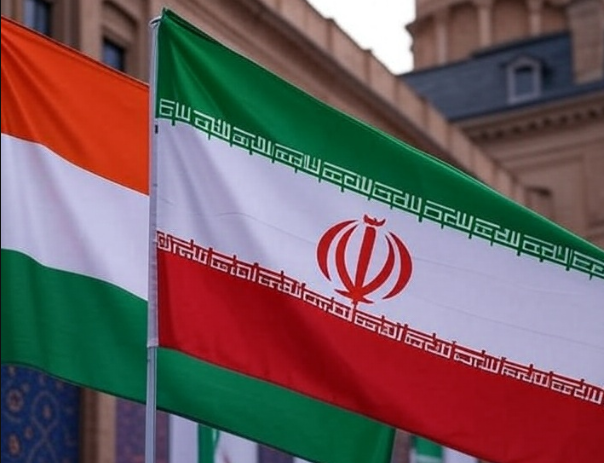
In a sudden move that raised eyebrows across the diplomatic world, the United States imposed sanctions on six Indian companies, citing alleged trade with Iran involving petrochemical products. The U.S. justification: these firms were violating sanctions aimed at isolating Iran due to its nuclear program. But what followed was not silence from Delhi—it was a loud, defiant response from Tehran, reshaping the narrative of power, sovereignty, and global diplomacy.
The Sanctions and the Accusation
The U.S. administration claimed these Indian companies were engaged in purchasing oil and petrochemical products from Iran, which, according to Washington, supports a dangerous nuclear regime. As per U.S. policy, any entity—state or corporate—that engages in commerce with Iran risks being targeted by American sanctions. While this approach is consistent with Washington’s decades-old strategy of using economic pressure to influence geopolitical decisions, its latest move has sparked fierce backlash—not from India yet, but from Iran.
Iran's Response: More Than Words
Shortly after the U.S. announcement, the Iranian embassy in New Delhi issued a scathing statement condemning the U.S. action. It accused the U.S. of weaponizing the global economy and deliberately hindering the development of sovereign countries like Iran and India. Tehran called the sanctions a clear violation of international law and the principles of national sovereignty.
The statement went further, describing the move as a form of “economic imperialism.” According to the Iranian embassy, these sanctions are not just about trade—they represent an attempt to control the foreign policy of sovereign nations through coercive financial tools.
On platform X (formerly Twitter), Iran wrote that this discriminatory and coercive act by the United States reinforces the urgent need for non-Western leadership in shaping a new global order. It wasn’t just a show of support for India—it was a declaration of an emerging multipolar world where Washington cannot dictate rules unilaterally.
Historical Ties and Strategic Depth
Iran and India share a deep-rooted strategic relationship—stretching from the development of Chabahar Port to energy cooperation and the International North-South Transport Corridor. Iran has consistently viewed India not just as an economic partner but as a strategic ally in the shifting dynamics of the region. That is why Tehran’s response to the U.S. sanctions was not just emotional but strategic—it was a defense of a long-term partnership and a challenge to American overreach.
Diplomatically, Iran’s words carried more weight than mere outrage. They echoed a vision of a global future in which the United States will no longer be the sole architect of international norms and rules. Tehran’s language was pointed, calling out the West’s manipulation of global institutions and trade relations as political tools—something it called a new colonialism.
Why Target Indian Companies?
The bigger question that arises is—why did the U.S. choose to target Indian companies at this moment? The answer lies in the geopolitical realignment that’s currently underway. India, Russia, and Iran are three major countries that have, in many ways, carved out foreign policies independent of Washington’s influence. Whether it’s India buying discounted oil from Russia, entering into energy deals with Iran, or taking active roles in non-Western alliances like BRICS and SCO—the pattern is clear. These are actions that make Washington uncomfortable.
Every time India asserts strategic autonomy—whether by engaging in multilateral platforms without the West, or by maintaining ties with sanctioned nations—it challenges America’s traditional role as the global arbiter. In response, Washington tries to reassert control—this time, through sanctions.
But India is not a country that can be boxed into submission. As many experts in New Delhi’s strategic circles have observed, decisions about India’s energy security and geopolitical direction will be made in Delhi, not in Washington. India’s oil companies operate under international law, and they do not recognize unilateral U.S. sanctions as superior to domestic policy or sovereign interest.
Silence from India, But Signals Are Clear
While India has not yet issued a formal response to the sanctions, the strategic message is already echoing across the region. India is unlikely to make policy decisions based on American pressure alone. In private diplomatic and strategic circles, there's growing consensus: India’s oil will come from wherever it deems fit—not where Washington says it should.
Moreover, Iran’s full-throated support for India underscores a rising counter-narrative to the U.S.-led global framework. It’s not merely about trade or energy; it's about asserting a new international balance. One where the global South—countries like India, Iran, Brazil, and South Africa—shape policies and principles based on mutual respect, not coercion.
The Broader Implications
This is no longer just about economic sanctions. It is a test of India’s strategic sovereignty, energy independence, and geopolitical vision. The way forward for India may not lie in choosing sides, but in carving a path where partnerships are based on equality, not subservience.
Iran’s open declaration of support for India is symbolic of this shift. It is a signal that a new geopolitical pole is forming—one where countries in the global South are ready to push back against unilateralism and economic arm-twisting.
Conclusion: A New Era of Diplomacy
This latest confrontation is not a footnote in diplomatic affairs—it is a headline of an evolving global power structure. The U.S. must recognize that this is not the India of the past. This is a confident, 21st-century India that honors friendships but refuses to bow to pressure. And now, that defiance is not just heard in Delhi—it’s echoed from Tehran.
India’s strategic decisions, especially in the energy sector, will not be dictated by another capital. The world must now adapt to a new reality: the age of Western hegemony is giving way to a multipolar world, and India is at the center of that change.
Disclaimer:
This article is intended for informational and analytical purposes only. The views and interpretations presented are based on publicly available information and diplomatic statements at the time of writing. It does not represent the official position of any government, organization, or company mentioned. Readers are encouraged to verify facts independently and consider multiple perspectives before forming conclusions




